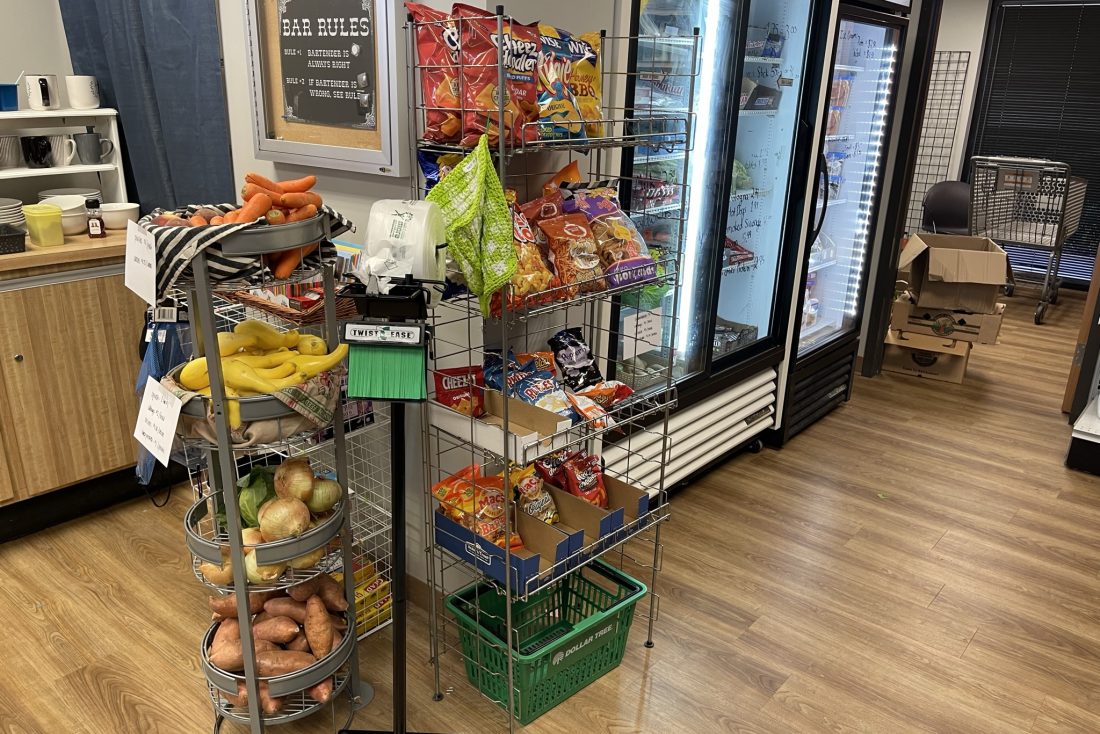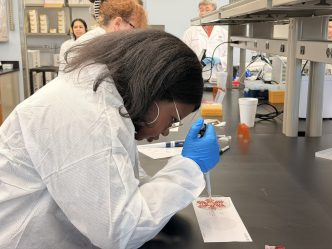The Georgia Cancer Center is aiming to reduce disparities in cancer rates and death among Augusta residents by helping them avoid things that increase their risk.
Funded by the American Cancer Society and Pfizer, the Cancer Health Awareness through screeNinG and Education (CHANGE) initiative is reaching out to five housing communities in Augusta to provide educational sessions on cancer prevention. The program also focuses on projects to enable and empower healthier behaviors among residents to ensure systemic and sustainable change in their community.
Residents of the Peabody Apartments were the first to complete educational sessions from the GCC, and following a survey, they indicated having healthier food choices was a priority.
“At Peabody, residents wanted to increase their access to fresh fruits and vegetables,” said Dr. Marlo Vernon, assistant professor at the Medical College of Georgia and Georgia Cancer Center. “We know eating fresh fruits and vegetables reduces cancer risk; they also help reduce obesity, which is a cancer risk.”
The Peabody Apartments are in an area where grocery stores aren’t readily available to the residents — so having daily access to fresh fruits and vegetables was their No. 1 priority.
Carrots, potatoes, onions and squash were among the items brought in for residents to purchase at the store located in the Peabody Apartment complex.
“It’s very important because we don’t have a way of getting around,” said Peabody resident Dorothy Dozier. “We have a store but we didn’t have fresh vegetables and I’m so glad they have them now, because probably everybody in here was raised on fresh vegetables.”
Augusta Locally Grown is a partner in the project and asked the residents specifically what fruits and vegetables they wanted.
Rebecca Van Loenen is executive director of Augusta Locally Grown and said the timing for this project was right with The HUB for Community Innovation opening in the area as well.
“The HUB was crucial for this to be able to happen. There’s a whole wholesale project that was started and initiated, and this stems out of the wholesale program,” said Van Loenen.
She added they will continue to get feedback from the residents to best provide for them, and that it helps having the local farmers who provide the produce just 15 minutes away.
Vernon also said talking to the community first to see what they want is of utmost importance. Without residents being behind the project, it’s tough to effect change.
With this project, not all housing communities will necessarily receive fruits and vegetables; it’s all contingent on their survey results. They will get cancer education and support with screening, but after that, it’s up to the residents to tell program managers what is needed most, which might relate to physical activity or even a program to quit smoking.
Overall, the project is a major win for those who might not normally receive the proper education and screenings for cancer.
“This project is twofold,” said Vernon. “One piece is working in the community, doing cancer education, reducing risk to cancer through the behaviors, and then navigating people to cancer screenings, especially with COVID. We’ve seen huge decreases in the people getting regular screenings.”
 Augusta University
Augusta University




